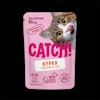
Pet food marketing claims related to the quality of the products can lead to lawsuits if those pet foods don’t live up to consumers’ expectations. The challenge for pet food marketers is that many of these claims are not defined by regulatory agencies, said Michael Annis, partner with Husch Blackwell, during his presentation at Petfood Forum.
Quality-related pet food marketing trigger terms
Many of these quality-related terms are associated with the methods used to produce a pet food or ingredient. Annis provided these examples of undefined pet food marketing claims:
- Artisanal
- Craft
- Handmade
- Small Batch
Pet food companies could face legal problems if their production methods don’t match consumers’ ideas of what artisanal or craft means. These terms can be what Annis called trigger terms. Trigger terms are specific words or phrases used in marketing that may leave the pet food company open to legal action in various ways. Some terms may be loosely defined and open to interpretation by consumers and courts. Others of these marketing terms may be unsubstantiated or make unfounded claims about benefits and qualities.
Quality-related imagery in pet food marketing
If a few trigger words can bring about a lawsuit, what about a picture that is worth a thousand words? Photos, drawings and other imagery used in pet food advertisements and packaging may also lead to lawsuits, Annis said. The imagery has to represent the product and its components’ qualities accurately.
Annis provided these examples of how a judge might rule that pet food marketing imagery was misleading to pet food buyers.
Premium grade: A pet food company could have problems if marketing materials use images of premium meats, poultry, fish and vegetables although the actual recipe contains lower quality meats and produce.
Primary species: Images of premium cuts from a particular animal, such as a beef steak, could lead to lawsuits if pet food is actually made with lower cost parts or from different species.
By-Product: If a pet food is made of by-products, then marketing imagery can’t depict muscle meat or similar ingredients.
Comparison-related claims in pet food marketing
Just as imagery must be accurate, so too must any comparisons or data presented about pet food quality. Advertisers must ensure that the product they promote meets the level of substantiation stated.
Some of these quality-related comparison claims include:
- “Proven to …”
- “Clinically proven to…”
- “Tests prove…”
- “Testing shows…”
Petfood Forum events
Annis shared his insights about pet food lawsuits during Petfood Forum 2019. To learn more about legal and many other aspects of the pet food industry attend Petfood Forum. Petfood Forum is a premiere trade show for pet food professionals from around the world to network, exchange ideas and do business with one another and with the industry's leading pet food manufacturers and suppliers. Related events occur around the world, including:


















